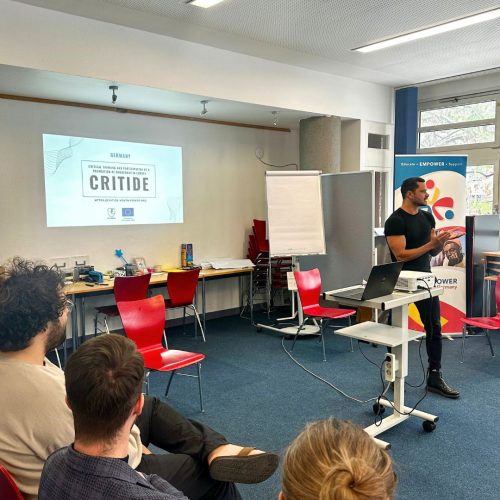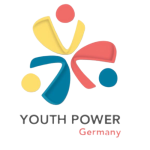
The “Critide: Critical Thinking and Participation as a Foundation of Democracy in Europe” conference on 29 November 2023, gathered 38 participants in Berlin. This event was important for advancing the dialogue on how critical thinking underpins democratic societies in Europe.
Key figures like Nedim Micijevic and Amar Hamzic, known for their innovative work in democratic education, shared their expertise in developing and implementing programs that engage youth and youth workers. Their approaches have been instrumental in nurturing a new generation of critically-minded and democratically active individuals.
A session led by Daniel Medeiros, an art educator and activist explored the intersection of art, democracy, and critical thinking, illustrating how artistic expression has both reflected and influenced democratic changes in Europe and South America. Medeiros provided tangible examples of art as a medium for political expression and social change, demonstrating its power to stimulate dialogue and challenge societal norms.
This conference highlighted the multidimensional nature of democracy and critical thinking. The diverse backgrounds of speakers like Micijevic, Amar Hamzic and Daniel Medeiros emphasized the project’s comprehensive strategy, which extends beyond traditional education. This approach signifies a broader understanding of democracy, recognizing that nurturing democratic values and critical thinking skills is a multifaceted endeavor involving various sectors of society.
The Agenda
The Critide conference agenda was meticulously planned, encompassing various critical elements to showcase and further the project’s mission. It kicked off with a detailed presentation of the Critide project, outlining its objectives, methodologies, and activities, providing a foundational understanding of its role in promoting critical thinking and democratic participation in Europe. Following this, the conference showcased the tangible intellectual outputs of the project, including educational materials and research findings, highlighting their contribution to the educational and democratic landscape.
An interactive Q&A session allowed for engaging discussions between participants and project leaders, fostering a deeper understanding of the project’s implications and challenges. A key feature of the conference was the practical workshop for youth workers, focusing on the application of a newly developed manual to encourage critical thinking and democratic engagement among young people.
To ensure the project’s continual improvement, feedback was collected from all attendees, an essential step for guiding future initiatives. Lastly, the conference introduced an online learning course and platform, key digital tools designed to extend the project’s reach, providing accessible and comprehensive educational content on democracy and critical thinking.
In essence, the Critide conference was a testament to the collaborative effort required to foster a well-informed, engaged, and democratic European community. It underscored the synergy among different fields in reinforcing democratic ideals, and the shared experiences and insights of the participants played a crucial role in enriching the discourse on democracy and critical thinking in Europe.

